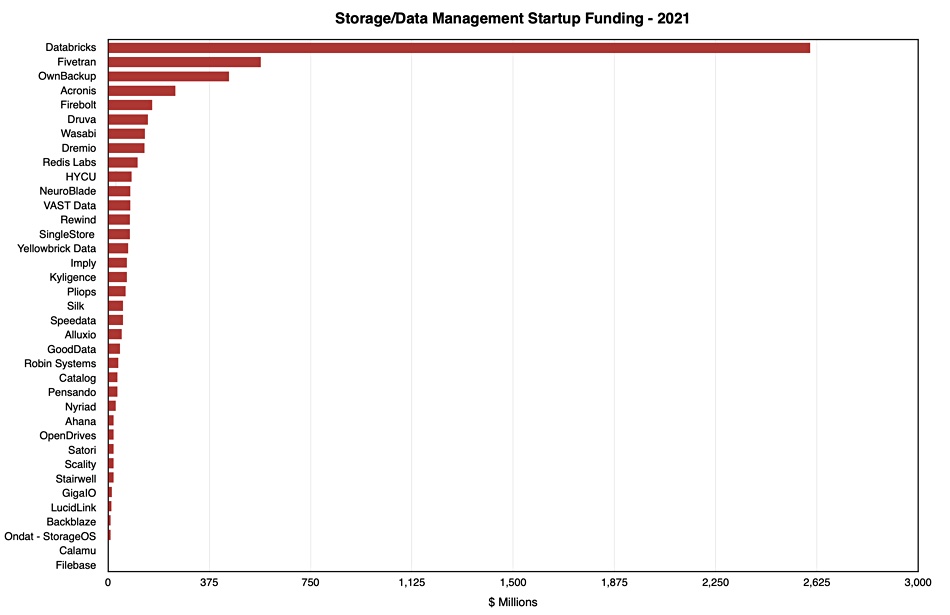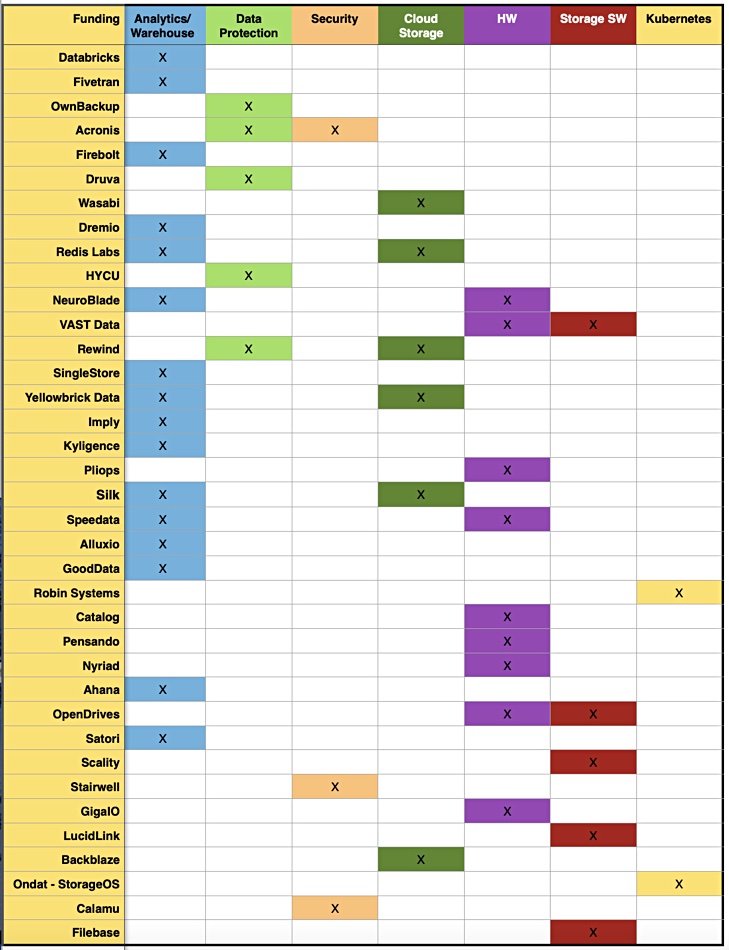$5.74 billion was invested in 36 storage startups this year, with the vast majority of it – $4.55 billion – going into data lake/warehouse and analytics companies.
We charted the storage-related startup funding we covered during the year and saw that Databricks easily topped the rankings with its extraordinary $2.6 billion raised – nearly half of the total – distantly followed by Fivetran with $565 million, just under ten per cent of the total. Here’s the chart:

We subdivided the recipients into categories: analytics and warehouses, data protection, security, cloud storage, hardware-led, storage software and Kubernetes-related startups. Recognising that some startups were in two of these categories, we then totted up the amount raised in each category:
- Analytics and warehouse – $4.55 billion (79.3 per cent);
- Data protection – $1.0 billion (17.4 per cent);
- Security – $272.4 million (4.7 per cent);
- Cloud storage – $418.75 million (7.3 per cent);
- Hardware-led – $418.75 (7.3 per cent);
- Storage software – $137.0 million (2.4 per cent);
- Kubernetes-related – $48.0 million (0.8 per cent).
The security total is heavily affected by Acronis’s $250 million raise. It was a mere $72.4 million without that. Pure-play storage security startups are not popular. Hardware-led storage startups raised $418.75 million – the same as the cloud storage startups.
The non-Kubernetes storage software startups raised $137 million, while the two Kubernetes-related startups raised $48 million – less than one per cent of the total. Storage software as a whole accounted for $185 million. Software is not yet eating the storage hardware startup market.

Next, we counted the startups in each category to see how popular they were numerically:
- Analytics and warehouse – 16
- Data protection – 5
- Security – 2
- Cloud storage – 6
- Hardware-led – 9
- Storage software – 5
- Kubernetes-related – 2
Hardware-led storage startups often have software involvement too – especially array companies like VAST Data and OpenDrives. We were surprised that there were more hardware startup funding rounds than data protection rounds, although the data protectors raised more than twice as much money.
So what does it all mean?
Our conclusion is the obvious one: massive amounts of VC funding is flowing into the analytics/data lake/data warehouse space, with data protection the next most popular category. The fact that cloud storage is getting more funding than other (on-premises) storage software companies is not unexpected – if we take out the VAST Data and OpenDrives hardware-led storage software players we are left with a derisory $34 million.
The low level of funding – $48 million – going into just two Kubernetes-storage related startups was surprising. We think that the mainstream suppliers have adopted Kubernetes quickly and effectively, and that open source development is cheap. In effect, we could say that the Kubernetes storage startup wave is over. Finished.
Essentially the bulk of storage startup funding this year has gone up-stack, away from the hardware and software boxes and into data-handling software. That is, software to protect the data, and – the big bucks golden goose area – software to store, access and manage large amounts of data for analytics.








